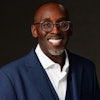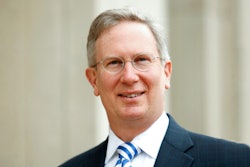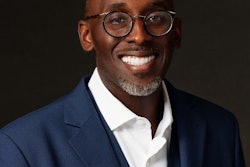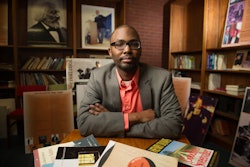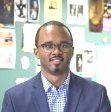 Ramon B. Goings
Ramon B. GoingsAs the U.S. population continues to become more diverse, so too are the college options available to students. Prior to the last 50 years, historically Black colleges and universities (HBCUs) were the only higher education institutions available for African-American students; however in recent years, enrollment numbers for HBCUs have declined given the increased number of available college options.
Unfortunately, the declining enrollment at HBCUs has brought on increased criticism from experts. Some pundits argue that HBCUs are irrelevant and inferior to predominantly White institutions (PWIs). They base this contention on the statistic that only 37 percent of HBCU students graduate within six years. While this argument may appear to be straightforward and valid, based on the numbers, it fails to examine or even acknowledging the complex issues that cause and impact these lower graduation rates such as the abrupt change in the requirements for the Parent PLUS loan program that made the affordability of attending HBCUs difficult for many students and families who rely on this assistance.
In many instances, various stakeholders tend to ask deficit-oriented questions about HBCUs, such as the following: Are HBCUs still relevant? Why are HBCUs still needed since Black students can go to any school they choose? Why do we continue to fund HBCUs when they do not have the resources to compete against PWIs?
The negative outlook about the future of HBCUs is captured in author Carolyn Dweck’s notion of a fixed mindset. In her book Mindset: The New Psychology of Success, Dweck defines a fixed mindset as a belief that individuals and, in this case, institutions, only have a predetermined ability level. This mindset is often displayed by critics who continuously ignore the successes of HBCUs and assume that they are incapable of performing at the level of PWIs. While the issues that HBCUs face are serious and worth investigating, there are also positive aspects of HBCUs that educational stakeholders should focus on, such as how these institutions succeed with limited resources, and how these institutions foster a strong sense of belongingness and racial pride in their students.
While Dweck explains that adopting a fixed mindset is very natural as individuals are taught this concept early in life, particularly in schools, she also argues that adopting a growth mindset is critical for individuals and institutions to overcome obstacles and challenges. Having a growth mindset involves adopting the belief that the true potential of individuals (and institutions in this case) is unknown and can be heavily influenced by support, hard work and determination. In the context of HBCUs, instead of asking deficit-oriented questions, we should change our mindset and ask new questions to uncover how HBCUs are supporting students despite the challenges they encounter.
For instance, HBCUs enroll a large number of first generation and Pell grant-eligible students, and they receive less funding than PWIs, which have more opportunities for local, state, federal, and private philanthropic funding and other resources. Therefore, instead of asking why HBCUs have a 37 percent six-year graduation rate, we should ask, from a growth mindset perspective, what we can learn from the 37 percent of students who do graduate within that time frame? That information would be invaluable in better informing the services and supports needed to increase the graduation rate.
In order to fully adopt a growth mindset, individuals must be dedicated to change and willing to engage in the work required to think differently. Verbal promises and spirited conversations will not provide the results needed to help HBCUs. The growth mindset requires individuals to view HBCUs as needed institutions within the American higher education landscape. HBCUs have a long and storied history of supporting African-American students at times when no other institutions were available. Though they only represent 3 percent of collegiate institutions, HBCUs are responsible for 25 percent of African-American graduates. In addition, HBCUs are the top producers of African-Americans who receive degrees in science, technology, engineering and mathematics (STEM) disciplines.
The future of HBCUs rests on the ability of education stakeholders to adopt a growth mindset and shift our conversations to focus on opportunities to enhance the strengths while providing support for areas of concern. As the saying goes, insanity is defined as doing the same thing over and over and expecting different results; thus, if stakeholders continue to ask deficit-oriented questions from a fixed mindset perspective, we will continue to get deficit-oriented results.
As the late Asa Hilliard so eloquently asks in the title of his 1991 ASCD article, do we have the will? Given the changing demographics at HBCUs, the will to adopt a growth mindset is the fuel that will allow these institutions to flourish and continue to provide educational opportunities for African-American students.
Ramon B. Goings is a doctoral candidate at Morgan State University. Dr. Marybeth Gasman is a professor of higher education in the Graduate School of Education at the University of Pennsylvania and also directs the Penn Center for Minority Serving Institutions.




